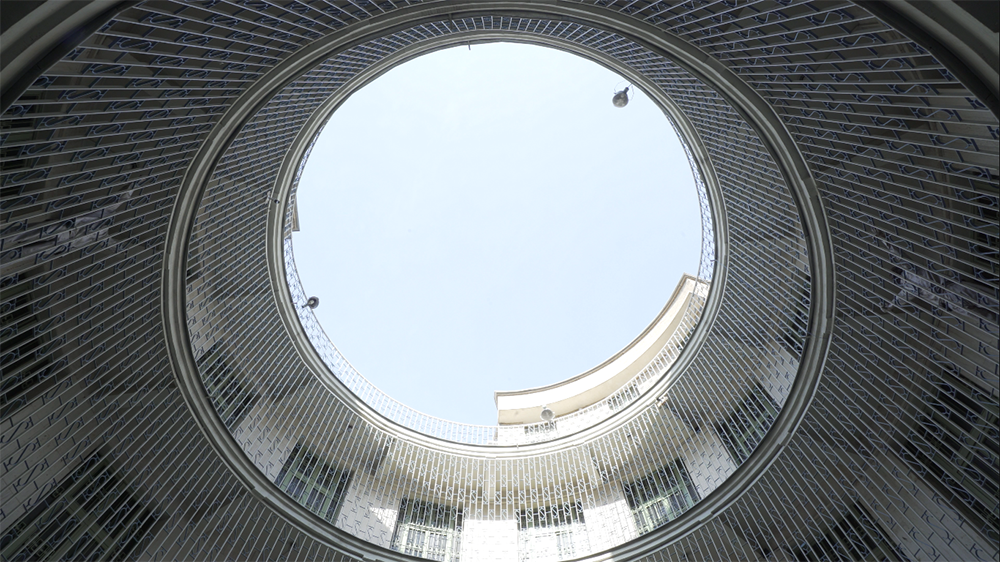
Still from Hollow.
Hollow reflects on the cells that we spend our life and death in — “the troglodyte village of Meymand to a secret police prison turned into a museum, a rectangular pigeon house, to Ekbatan, a high-rise residential complex, [and] ends up into Behesht-e Zahra of Tehran, the largest Cemetery in Iran.” The film opens with a pan across a dwelling carved into a rock face, the stone and mud facade punctuated by wooden doors and window frames. We see an abandoned train car, a desolate cinderblock apartment structure with rectangular openings but no windows and vines growing inside; a Brutalist apartment building in poor shape but with a beautiful curved outdoor staircase; and a circular building with hollow courtyard, looking up to the sky with images of desolate people in grey uniforms — is it a prison? Like a voyeur, we glimpse into the windows of a vast apartment block with identical units. A wall with rectangular indentations is the home to nesting pigeons in the hollows. The film is entirely silent.
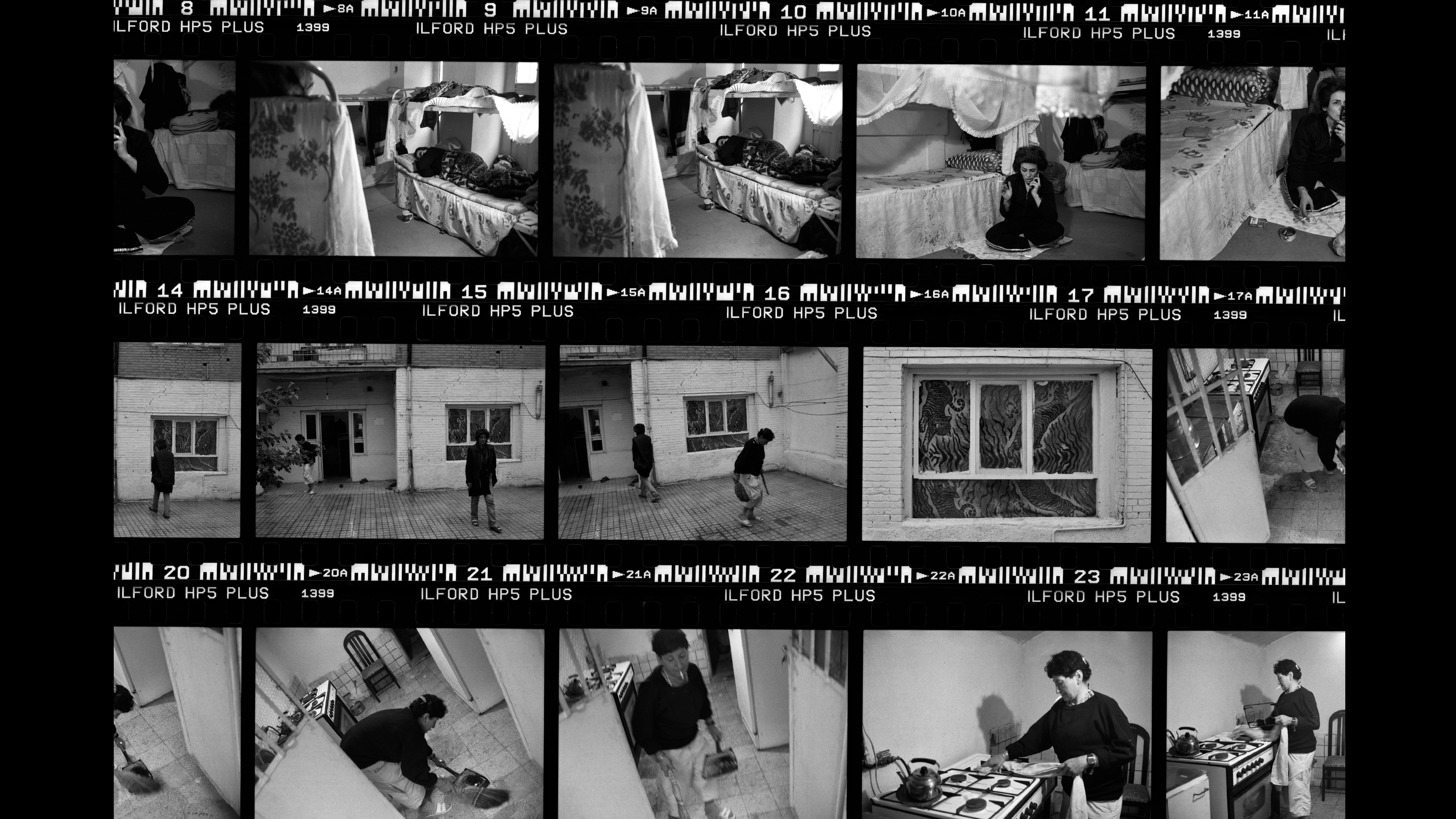
Still from Density of Emptiness.
Similarly, Density of Emptiness deals with the vacuity of spaces, “contrasting images of a women’s shelter with the vast complexes of empty newly-build flats…unbalanced density in the concept of place – the unbalanced division of space in the city of Tehran.” The film opens with a wide shot of the city, then zoom into double towers with cranes in front: “Over there, they have transformed the skyline into lone vertical strongholds. A dense empty mass of steel, stone and concrete.” A grid of towers morphs into a photographic contact sheet with 35mm B&W photos of a bustling life. This is contested with the sterile apartment interiors, a modernist white interior empty of all furnishing, an island kitchen, domed rooms, arched windows, Corinthian columns, mirrored glass, shiny marble floors, skylight light fixtures, washer/dryer. Commentaries include “The space that the rulers of the city entrap by stone and cement, will grow in value with the passing of time. The later a key is turned in the keyhole of this house, the more expensive will its cold and empty space become,” “In the illusion of the rulers, the space of the slopes is like an illegitimate child that must be devoured. Every square meter of land they swallow will hold a treasure,” and “Over there, in the geography of the city, abandoned castles stand like scarecrows, guarding their own emptiness.”
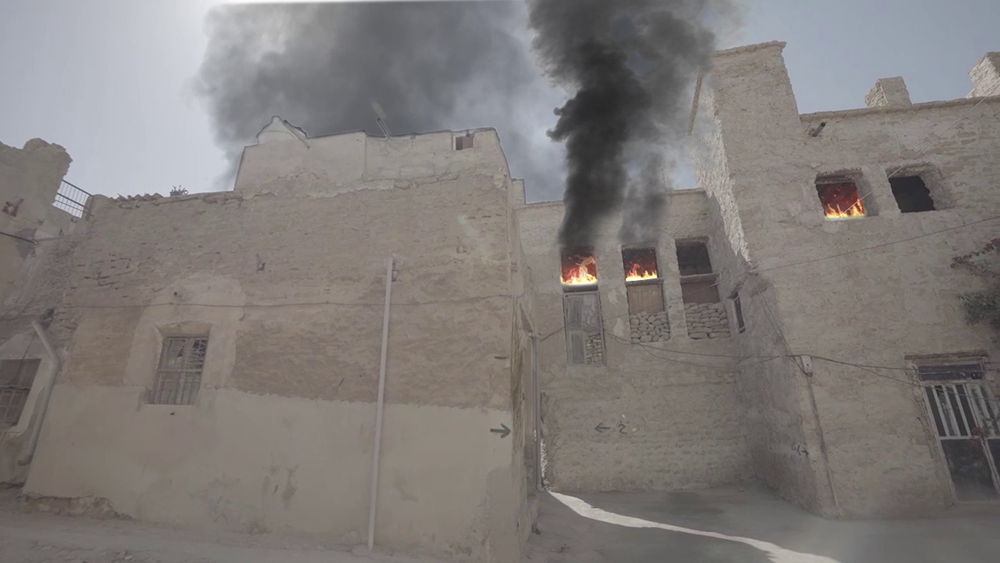
Still from Phobos.
Phobos focuses on the destruction of a city, Bushehr on the Persian Gulf, a target during the Iran-Iraq War of the 1980s, which is the hometown of director, Mina Keshavarz, who imagines getting lost in a place she knows but of which she has nightmarish visions. She walks toward the sea with her body feeling on fire, down empty corridors, forwards and backwards, leading to squares and various buildings, empty food market stalls, empty storefronts, a building with black smoke rising, and broken boats on the shore. “I, home, city, we are burning together.”
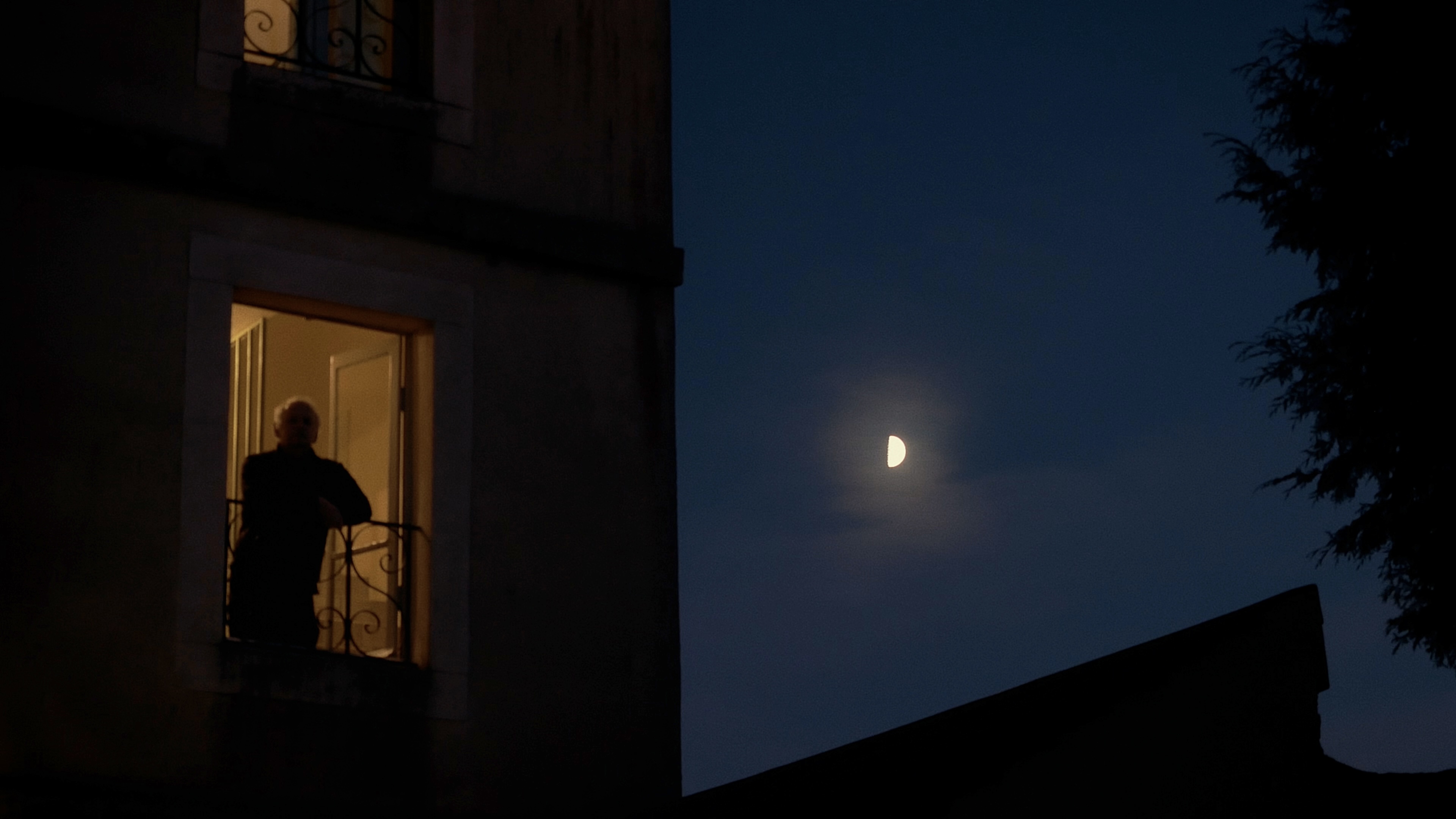
Still from Great are the Eyes of a Dead Father.
Great are the Eyes of a Dead Father is the story of Franco-Iranian painter and poet Patrick Navaï, who lives in rural France with his wife and musician son. Their seemingly idyllic life in a medieval village near a vast forest consists of painting, playing music, reading poetry and taking long walks, but masks an unfulfilled desire to know his emigre father’s Iranian life. Audio cassettes labelled “Narration Houcheng,”his father’s Persian name, while he was only allowed to be called Patrick, not Parviz, after his parents made a trip to Iran and his French mother came back disgusted, and Persian was no longer spoken at home. This successful artist who was awarded the Medal of the City of Paris, whose work is in French museums, and is the author of 14 books of poetry, is still longing for a land he never knew.
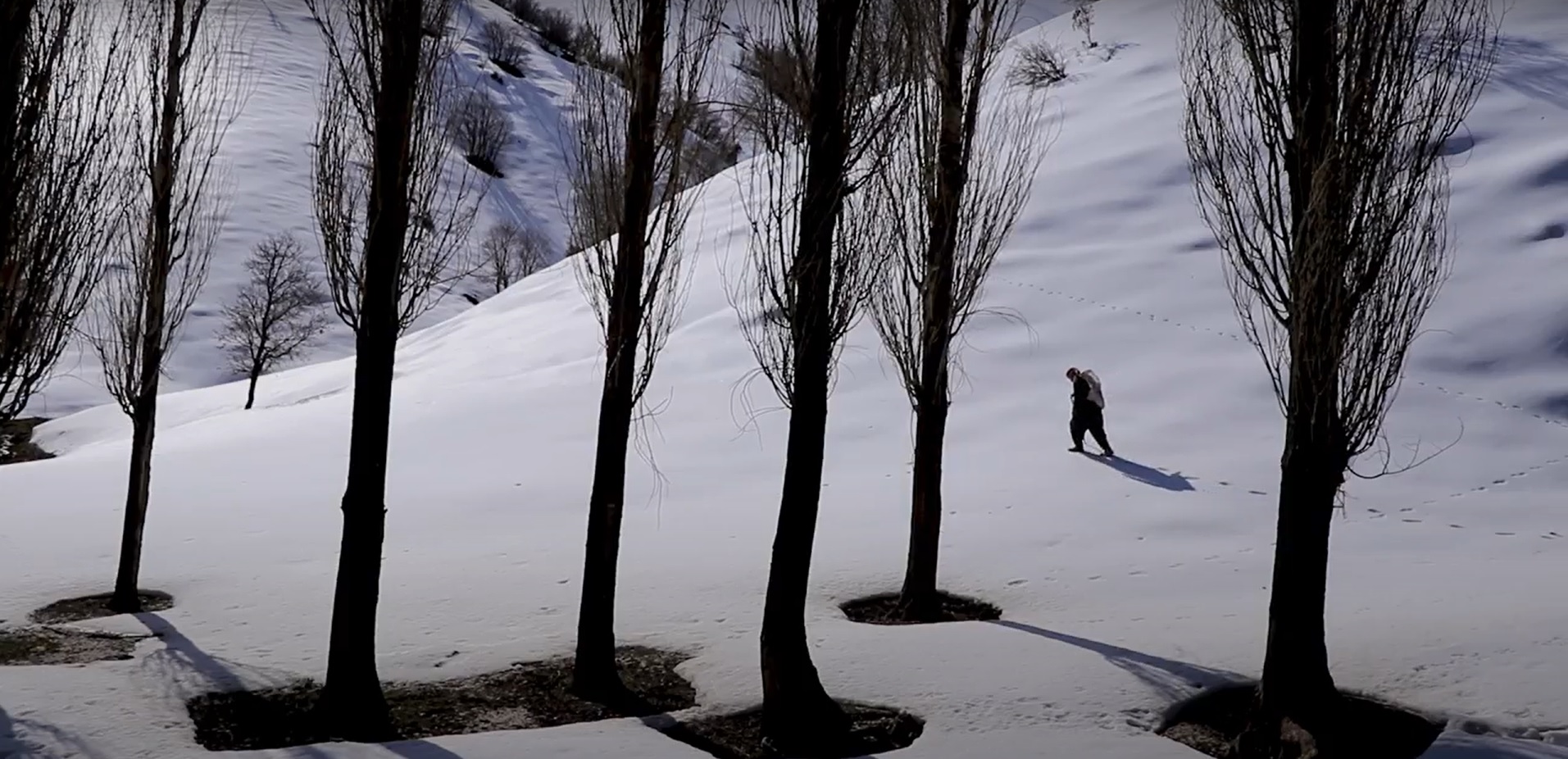
Still from Carpenter.
Other films at the festival dealt with the impact of war. Carpenter is Hussein Mahmood, a Kurd who crafts false legs for victims of land mine accidents in his native Iran. On in years but still strong and skilled, he goes through the process by himself from start to finish: in the woods, in snow, camping in a tent, he cuts down the logs, hollows out and shapes into prosthetics, largely for older men. It is only at the end that we see that he, too, is an amputee having lost his right foot and lower leg, replaced by one of his own implants.
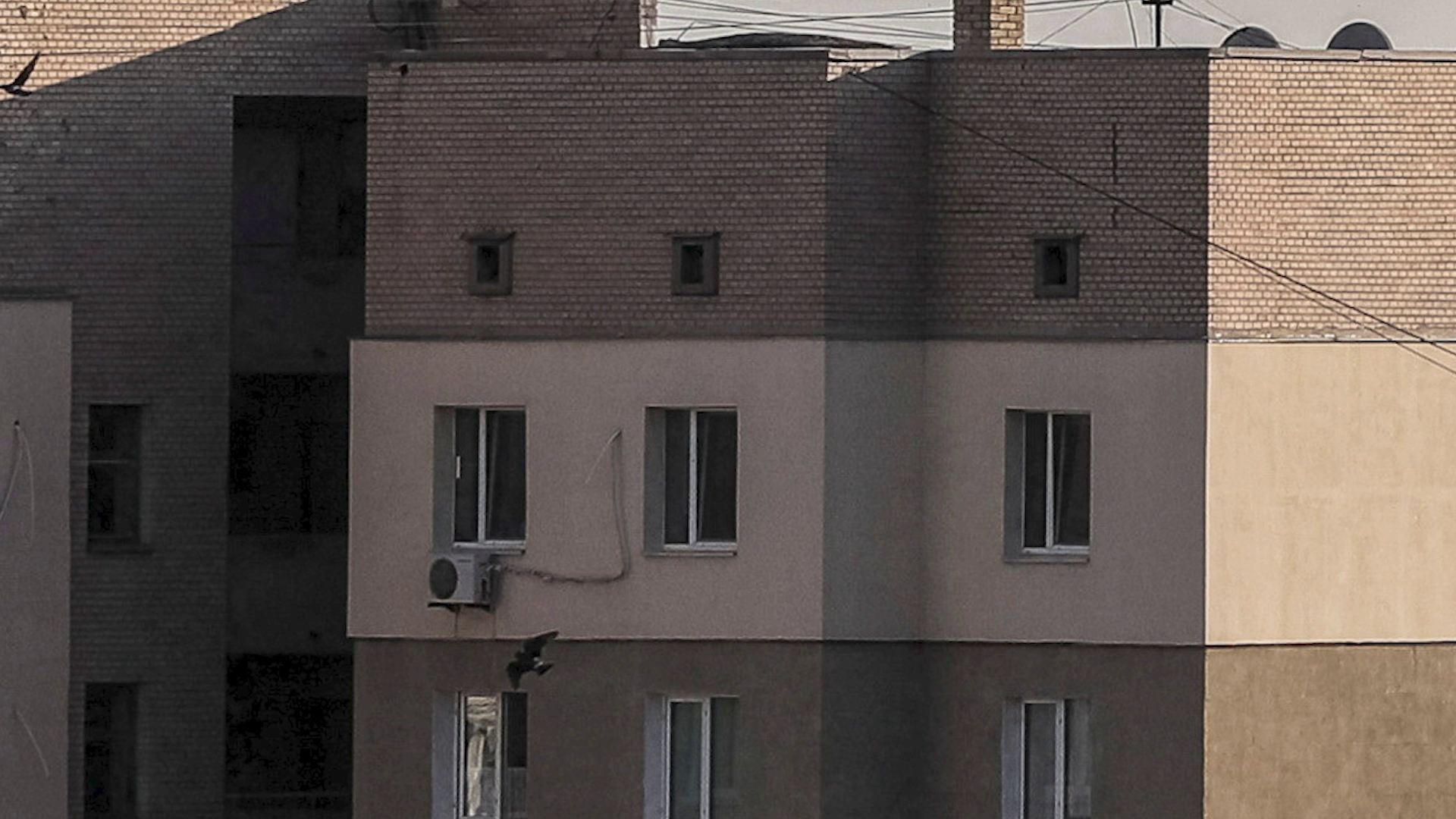
Still from Three Windows on Southwest.
Three Windows on Southwest recalls the treasured apartment in Kyiv the Ponomarova family moved into in 2002 when they moved from the ground floor up to the 15th, with sunrises on the balcony, and a short hop to the roof. Starting with a photograph of the interior, filmmaker Mariia Ponomarova remembers her life there in three conversations with her mother and two friends. Now, in 2022, smoke from Russian missile targets can be seen behind her building while she begins to reclaim the image of her home.
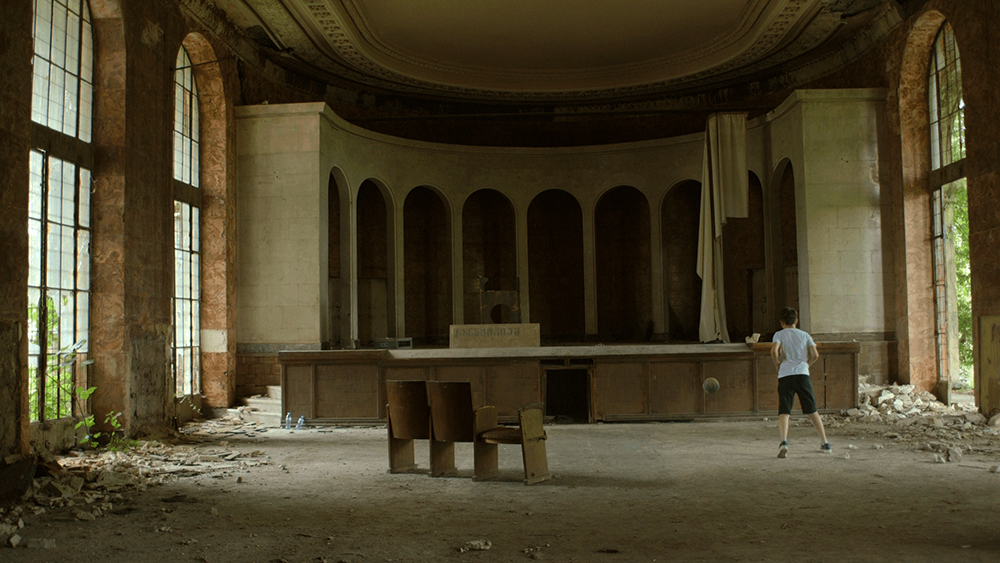
Still from Hotel Metalurg.
Survivors of the Abkhaz-Georgian War where Russian-backed separatists took control of the Georgian province of Abkhazia, fought after the dissolution of the Soviet Union in 1991. Reminiscent of Russia’s claim to Ukraine’s Donbas, the conflict caused many to flee the region with refugees relocating to the town of Tskaltubo, an abandoned tourist resort filled with Soviet-era luxury sanatoriums. Over the last three decades, most of the men have gone, leaving a population of women and children in the hotel which has fallen into disrepair. Hotel Metalurg is one such venue where you can see the former grandeur of the hotel in the big crystal chandelier in the round double-height hall with a grand staircase and large stone columns where a young boy plays ball. One woman hasn’t seen her husband in 11 years, while a toothless old woman says she came from a wealthy family that was ruined by the war. The hotel is now the site for wedding photographs, so we see a parade of bridal parties posing around the romantic ruins. The exterior is still regal with a big windowed vaulted entrance and above it arches and elaborate fenestration under a pediment. The Ministry of the Economy has listed 114 such structures for auction including this one to be refurbished into a luxury hotel, so the residents are being relocated to new council estates, boring cookie-cutter apartments compared to what they have been used to. An elderly bedridden woman says “Russians wage war wherever they go. When have they ever done any good?” while we see the Russian invasions of Ukraine on TV.
Read about outcasts and the arts at the Sheffield DocFest.
Films Mentioned
Hollow, Director Mohammadreza Farzad
Density of Emptiness, Director Shirin Barghnavard
Phobos, Director Mina Keshavarz
Great are the Eyes of a Dead Father, Director Afsaneh Salari
Carpenter, Director Xelil Sehragerd
Three Windows on Southwest, Director Mariia Ponomarova
Hotel Metalurg, Directors George Varsimashvili & Jeanne Noguchi
